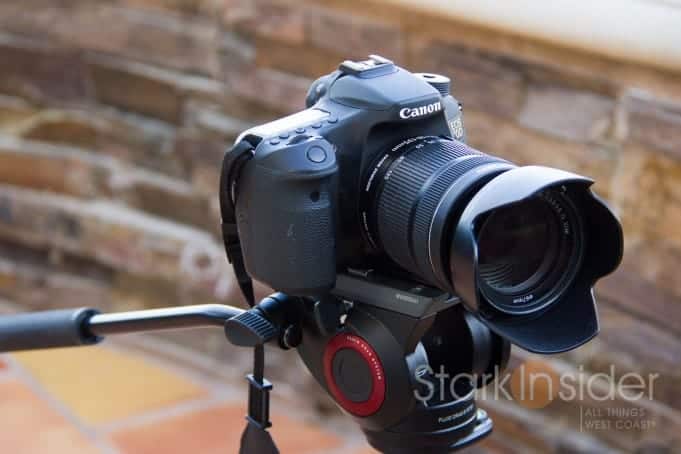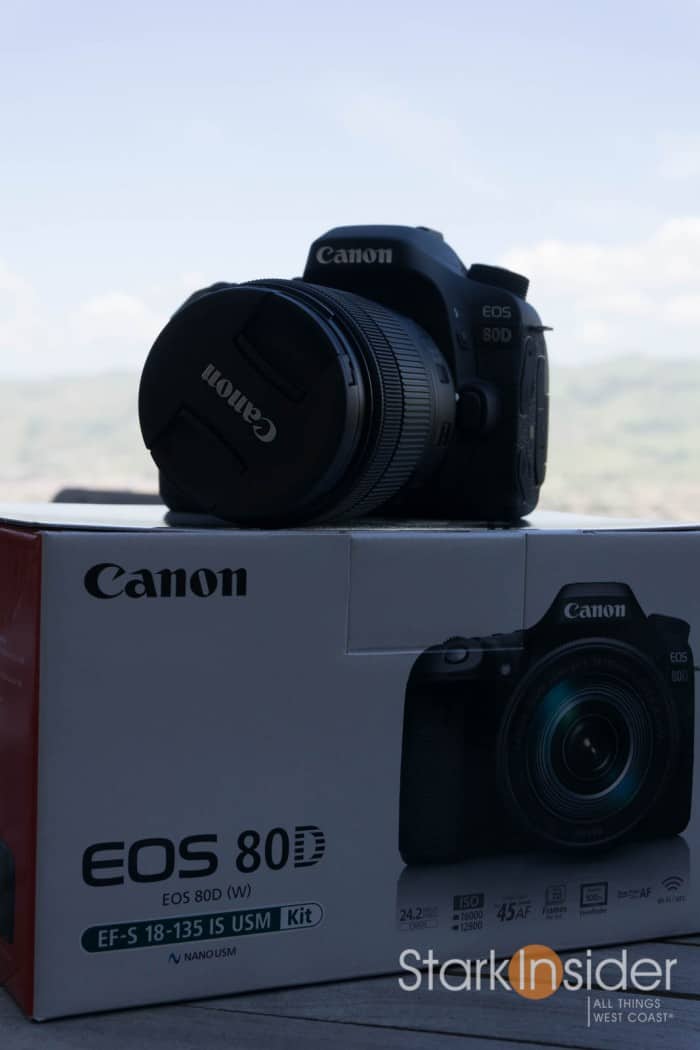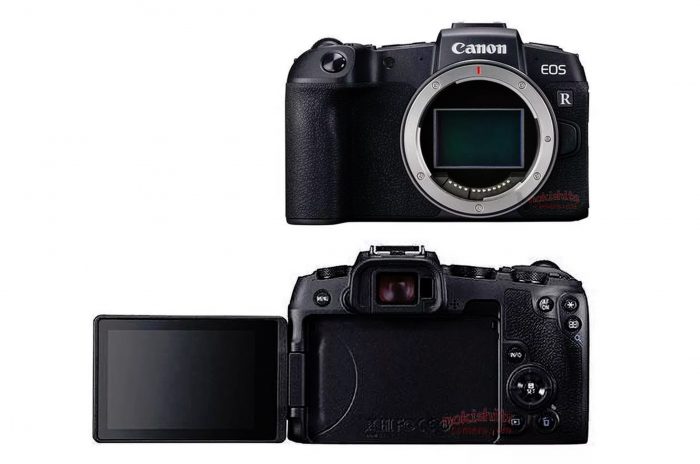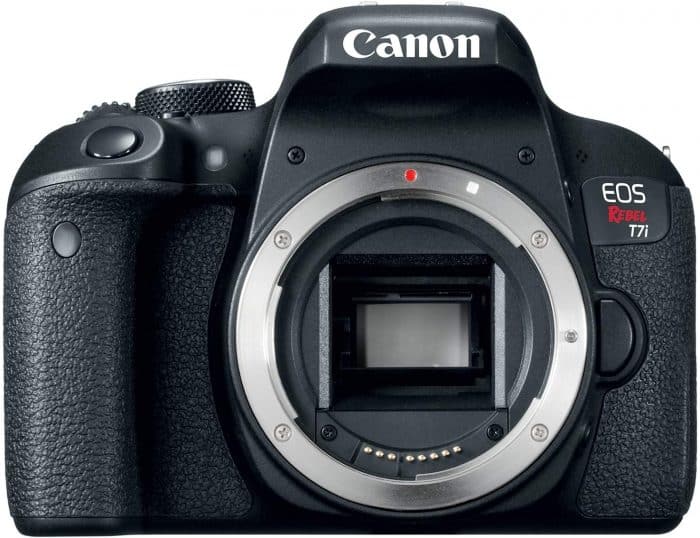Yes, our smartphone cameras are very good. But a dedicated DSLR or mirrorless camera can do a lot more. If you’re serious about photography and/or videography, having one on hand can help you achieve outstanding results and possibly take your game to the next level. Better still, you needn’t worry about using up all your cloud and phone storage. Instead, with a dedicated camera you can rely on storage media — typically SD cards — to handle those duties, and save your phone storage for other important stuff.
If you’re shopping this season for a camera, I still think Canon is a great place to start (with Sony also a strong consideration for its mirrorless range).
Value shoppers looking for a do-all camera should consider the Canon EOS 80D.
1. Canon EOS 80D
Type: DSLR
Sensor: APS-C (crop)
Price: $849 (original retail $1,499+ USD)
Outstanding auto-focus, thanks to Canon’s best-in-class Dual Pixel Auto Focus (DPAF). Easy to use ergonomics — controls fall to hand in all the right ways. Long battery life (way longer than most mirrorless cameras). Simple menus and navigation buttons. And… of course, beautiful imagery. What more could you want?
Well, to be sure, there’s no 4K video to be found in the EOS 80D. It’s (tried and true) 1080p HD. Still, I bet most wouldn’t notice. Upload a video to YouTube in 1080p and you’ll do just fine, unless you have a particular requirement such as zooming in on wildlife videos, or punching in on interview footage.
I’ve shot backstage videos at Cirque du Soleil, Broadway shows, filmed music and video film festivals with an 80D (and before that, the 70D, 60D and T2i) and it has never let me down once.
Accessories for the 80D such as batteries and memory cards and grips and microphones are inexpensive and easily found on places like Amazon.
For 2019 and 2020, I still think the Canon EOS 80D is a superb choice that can be now had for an impressive discount.
2. Canon EOS RP
Type: Mirrorless
Sensor: Full Frame
Price: $999 (original retail $1,299 USD)
If you simply must have 4K and want something newer than the venerable 80D, consider the relatively new Canon EOS RP.
This is a full-frame model. Unlike the APS-C sensor found in the 80D and other Canon crop sensor-based cameras, the RP features a sensor that affords a wider field of view. This means you can get shallower depth of field more easily than on most other cameras. Keep in mind, this could be a disadvantage when working with video and keeping things could be more difficult (it depends largely on the lens you’re using and the available light).
To make things tantalizingly sweet for camera shoppers, Canon has dropped the price of the RP substantially. Look for it online for under $1,000 USD. That’s insane value for a new full-frame camera. Sure, there’s more powerful models out there with more tech wizardry, but for getting the job done without breaking the bank this is really an option to consider.
One thing to keep in mind regarding the RP. It uses the new Canon RF mount. If you want to mount your existing Canon lenses, you’ll likely need an adapter (EF/EF-S to RF). Fortunately Canon sells one at a reasonable cost.
SHOT ON CANON DSLR:
Videos shot on Canon DSLR by Clinton and Loni Stark for Stark Insider.
WRONG’S WHAT I DO BEST // SAN FRANCISCO ART INSTITUTE
3 DAYS IN SONOMA
(shot on Canon DSLR, Panasonic GH5, Blackmagic)
SAUSALITO ART FESTIVAL
3. Canon EOS Rebel T7i
Type: DSLR
Sensor: APS-C (crop)
Price: $599 (original retail $749 USD)
Canon’s Rebel line-up have been long-standing favorites for shoppers looking for value — those who want to jump into more serious photography and videography, but want to get started without the complexity of more sophisticated cameras. Rebel is a good place to start if that sounds like you.
I got started 9 or so years ago on the DSRL train thanks to the Canon EOS Rebel T2i. I think it’s still a marvelous camera that can do a lot, even by today’s standards. However, technology has come a long way since then. So if I were in the market today, I’d look at something like the video-centric Rebel T7i.
Dual Pixel AF is here, along with 45-point auto-focus points. The T7i has a fast Digic 7 image processor which simply means performance is blazing fast. For connectivity there’s WiFi, NFC, Bluetooth for quickly transferring photos to your phone when needed.
And even though the T7i is targeted at budget shoppers, there’s no sacrifice (at least that I can see) in build quality. So Canon’s hallmark build and ergonomics are here. Buttons and dials feel good to the touch. Things are, in a word… robust.
One final thing worth pointing out. As you’ll find across most Canon DSLR cameras, the T7i has a fully articulating flippy screen making it suitable for Vlogging. YouTubers will appreciate that feature as it means you don’t need to rig up a bulky external monitor of some sort. Less complexity. Less to think about. Less to break. All good in my book.
Tip: Look for online deals for the Canon EOS 80D, EOS RP, and Rebel T7i n places like Amazon.





